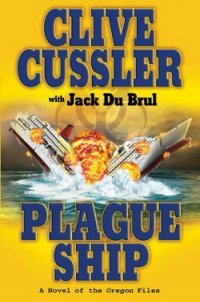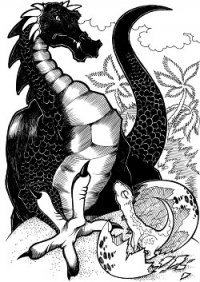Circle of Bones - Kling Christine (полная версия книги txt) 📗
By now the night had grown dark, and she no longer had to worry about the man seeing her outlined against the sky. She squatted on the foredeck, and her line of sight through the forward hatch showed a cabin that was dimly lit at the aft end. He had a small flashlight. She got down on all fours, then crawled on her belly to the hatch and lowered her head inside for a better look.
She couldn’t make out the man, only the dark bulk facing outboard, seated at her chart table. She could see the flashlight’s beam dancing around under the lifted lid, searching the contents. She almost yelled out in her fury, but she didn’t want him to get away this time. She slid her feet through the narrow hatch and eased her deck shoes onto the berth. Then ducking inside, she slid to the floor and stood just inside the cabin door.
This was her home, her bed, but for a moment she felt disoriented. Pressing her body against the drawers under the bunk, she was out of his line of sight, hidden by the bulk of the open door. She scanned the cabin, remembering more than seeing what was there. By her bunk, behind the door. She needed a weapon. She kept a ten-inch aluminum Maglite flashlight in a pocket on the bulkhead for nights when she had to get out of bed and on deck in a hurry. She reached in and eased the flashlight out, then gripped it in her right hand, bottom up, measuring the weight of it.
From aft, she heard the sound of the chart table top dropping into place. She eased to her left and saw his shadow pass in front of the open cockpit companionway. She ducked back behind the door. Would he see her outline in the dark? No, especially not after losing his night vision from the light he was using. After sliding her butt onto the bunk, she pivoted, then swung her legs up and crawled onto the mattress.
The floorboards between the settees in the main salon creaked. The thin beam of his light danced around the woodwork in her cabin. He was coming forward. The sound of the wind moaning in the rigging masked any noise she made as she shifted her legs across the mattress until she was kneeling on the bunk behind the open door.
She saw the flashlight appear from around the corner of the door and she knew his body would soon follow. She raised the Maglite over her head and waited. She sensed his bulk more than saw him, and that was when she struck.
CHAPTER TWENTY-SEVEN
The Atlantic south of Bermuda
February 12, 1942
After several seconds’ silence, all three men began shouting at once. McKay’s voice, the loudest of the lot, drowned out those of the captain and young Mullins.
“Bollocks. S’not true. There’s no bomb. He’s nothin’ but a shit stirrer,” he said.
The captain quieted them by turning off the torch and plunging the hold into darkness. When he had their attention, he clicked it back on, illuminating Woolsey in a column of light. “This is true, Lieutenant?”
Woolsey blinked and turned his face aside. He could hear the other men shuffling in the dark, moving in closer to hear him. “Captain, we don’t have time for the why and wherefore. Suffice it to say that this afternoon, on orders, I brought aboard and armed an explosive device that is set to go off within twenty-four hours of arming.” He tilted his wristwatch toward the torchlight. “That was roughly three hours ago.”
“Why you —” McKay started toward him but the captain reached out and shone the light on his face.
He barked, “Monsiuer McKay. Arrete. Stop.”
Woolsey was surprised that the big signalman followed the Frenchman’s orders.
The captain swung the torchlight back round on Woolsey’s face. “You say we don’t have time, but I say you have sufficient time to explain this to me. Who gave you your orders?”
“I am not at liberty to say, sir.”
“Non. Ca ne suffit pas. I will not accept that. It cannot be true that the British plan to destroy this magnificent boat.”
Woolsey tried to laugh, but it sounded more like a gasp. “Captain, do you have any idea of the gross tonnage of ships we’re losing daily in this Atlantic War? You’re nothing but a gnat in their eye. It’s all about money and goods, man. When the cost of her upkeep exceeded her usefulness to the Allies, Surcouf was doomed.”
“If this is true, Lieutenant, why not take her out of service?”
“Do you really think DeGaulle would let us? She’s become a bloody symbol for the Free French, sir. But a damned expensive one.”
The captain turned his back on the British officer and his torch lit the far side of the hold. Woolsey saw McKay glowering at him between slugs of drink, his cheeks reddening with each swallow. He was seated atop an enormous stack of crates of wine. Mullins sat on the floor not far from him, his head swiveling back and forth between his lieutenant and the angry telegraphist. Woolsey saw his lips move, but he couldn’t hear what he was saying. Either he was trying to calm McKay or he was praying.
Captain Lamoreaux turned back to face Woolsey. “You were ordered to place this bomb, and then leave this boat and your own men to die?”
Woolsey spread his hands, palms upward. “Men are dying every day in this war. Ordered to do so. This isn’t personal. You see, there are some critically important documents aboard this boat. The Americans need them. My orders were to set the explosives so the world would think Surcouf was the victim of a U-boat, and then to get the documents to the Americans.” Woolsey hoped the captain would leave it at that. If he started asking him any more questions about who had issued the orders, he would have to lie. And he knew he was a piss poor liar.
“How convenient for you that you were the one man who was supposed to survive.”
Woolsey wiped his palms on his pants leg. There was no heat in the hold, and his hands were cold, yet wet with sweat. “Just following orders, sir.”
For such a big man, McKay’s moves were both fast and silent. The first sound Woolsey heard came only a couple of seconds before the big man’s head and shoulders plowed into his gut.
The two of them went down in the pool of spilled red wine. He thought maybe the other men, Lamoreaux and Mullins, were yelling since their mouths were moving, but he couldn’t hear anything over the roaring in his ears.
McKay had him pinned to the floor. Woolsey tried to use his arms for protection, it was to no avail. The big man concentrated on his body and the blows to his ribs and abdomen made it impossible to breathe. As the darkness round the perimeter of his vision began to close in, Woolsey registered a different sort of look in McKay’s eyes. They changed from dull, unseeing brutish eyes, to green pools sparking with light and interest.
McKay froze with his fist drawn back, then he leaned down over Woolsey and reached out his arm. When he raised back up onto his knees, he held a dark round piece of glass. It was part of the wine bottle’s bottom and attached to it was a long slender shard, two inches wide at the base and tapering off to a perfect, razor sharp point.
“Gonna leave us to die, was you?” McKay asked, turning the glass in the torchlight, staring at it and grinning as he watched the faint emerald shadow dance across the deck.
Woolsey opened his mouth but nothing came out.
“Havin’ a little brown trouser moment here, eh Lieutenant?” McKay pressed the point against Woolsey’s neck and the lieutenant felt the sharp pain as it pierced the surface of the skin. “You yellow-bellied piece of shit, let’s see if you can take a little of what you was plannin’ for us. Them bombs dismember, ya know.”
At that moment, Woolsey found his voice, but to his profound embarrassment, what came out was a high-pitched scream. Or so he thought at first. Then, when a blur of a shadow knocked the big man off him, Woolsey realized his barely audible “Please!” had been drowned out by the screams of Walter Mullins as he had launched himself at the big telegraphist. The two of them disappeared into the shadows beyond the column of light and with them went the sounds of their scuffling. The captain’s voice was now penetrating the roaring in Woolsey’s ears, but the man seemed to have forgotten how to speak English. He was hollering “Arrete!” and other words the lieutenant could not comprehend.




